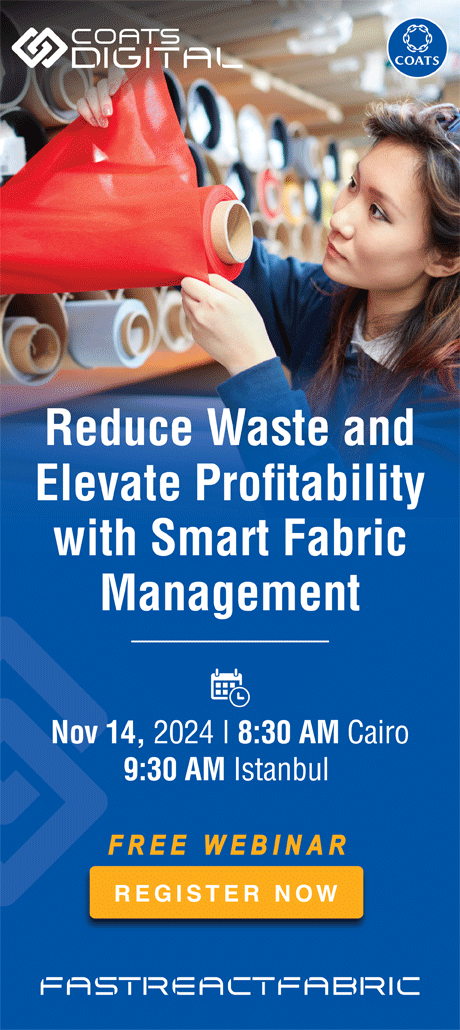The Future is Urban :: Urbanisation is one of the key words of our time. More than half the world’s population already lives in cities. In its “Theme Park” inspiration area, the upcoming Heimtextil (9-12 January 2018) will reveal how urban life is likely to impact the worlds of living and working in future. As part of the official “Theme Park” preview on 30 August 2017 in Frankfurt am Main, the London design studio FranklinTill gave an initial insight into the new trend concept. Under the title “The future is urban”, Kate Franklin and Caroline Till presented the new Heimtefxtil Trendbook. Together with Anne Marie Commandeur from the Stijlinstituut Amsterdam and Felix Diener from the Düsseldorf studio of the same name, they published their predictions for future interior design.
- Preview of Heimtextil “Theme Park” with FranklinTill Studio, Stijlinstituut Amsterdam and Studio Felix Diener
- Four “Spaces” depict macro trends; five additional themes showcase the colours, materials and designs of the new season
‘FranklinTill and all the trend experts involved have managed to provide the international interior industry with a superb source of inspiration to use in their product developments. With the new Heimtextil Trendbook, textile manufacturers, designers, fitters and furnishers will get a valuable overview of trailblazing design developments’, says Olaf Schmidt, Vice President Textiles & Textile Technologies at Messe Frankfurt. The “Theme Park” will also provide in-depth information about new design themes during the trade fair in January. The elaborately designed presentation in hall 6.0 will incorporate market-defining themes and present solutions for the textile interior of tomorrow. Those interested in trends can already get some answers to their furnishing questions of the future on www.heimtextil-theme-park.com.
The new book and the showcase at the trade fair will give a comprehensive idea of how rooms will be designed in the future. How will we live, work, shop and cohabit? Four so-called Spaces will provide a platform for upcoming lifestyle trends and present numerous pioneering projects and creative works.
The Flexible Space This lifestyle trend shows solutions for big city dwellers who are increasingly living like modern nomads and in ever smaller flats. Designers, architects and planners tackle this challenge with a great deal of ingenuity and optimize the available space with convertible and adaptable design.
The Healthy Space
We’ve long known the far-reaching effect that the spaces in which we live, work, learn and relax can have on our well-being. Designers, architects and materials scientists are increasingly searching for innovative design that promotes our levels of health, satisfaction, attentiveness and productivity. From the integration of plants indoors to new directions in wellness, the healthy space is on the rise.
The Re-Made Space
Another phenomenon of urbanisation is the rapid generation of waste. For the first time in history, the amount of waste produced in cities is growing faster than urbanisation itself. To conquer this huge mountain of waste, cities must understand that the future is to put waste on an equal footing with resources. This will make waste a starting point for new design.
The Maker Space
The maker movement has triggered a revolution in the manufacture of interior design objects. It has the potential to fundamentally change production, particularly thanks to the democratization of digital manufacturing technology. DIY instructions, open source and downloadable designs make it possible for everyone to develop their own personalized products wherever they might be.
The trend experts have also worked on the development of an additional five themes that give an outlook on the trendy colors, materials and designs of the 2018/19 season.
Relax/Recharge
Colors are known to influence moods and feelings. In contrast to current views, blue has been shown to be stimulating and red calming. Relax/Recharge is a transformative design option that uses the power of colours to bring the energy balance of over-stimulated urban living worlds back into equilibrium. Walls, floors and furniture are completely immersed in color.
Perfect Imperfection
Indigo, one of the oldest dyes in the world, is currently much in vogue among numerous current brands and designers. They are rediscovering indigo dyeing and accepting all of the foibles and the many color gradations of this deep blue color. Based on the Japanese philosophy of Wabi-Sabi (“accepting the imperfect”), materials and products bear the traces of the way they were made. Brush strokes and seams are made visible and welcomed as part of the poetic documentation of the creative process.
Soft Minimal
Urban living systems are multifunctional and can be adapted. Soft Minimal focuses on interior designs and products that appeal because of their functionality and are valued for a lifetime. Cosy materials – wool, felt, linen and bouclé yarn – give a minimalistic flat some warmth and personality. A reserved color palette of muted pastel colors and neutral shades complemented by matt black ensures timeless elegance.
Adapt+Assemble
Freed of all excess frills, the designs appeal with geometric and interchangeable shapes and materials that are perfect for packing and transporting – travelling and moving made easy. The textile techniques used are simple and reliable. Industrial materials are reinterpreted and converted for home use. Bright primary colors ensure a playful appearance.
Urban Oasis
Designers transform interiors into green oases in order to use nature to achieve an increased sense of well-being. Green is regarded as the most relaxing color for the eye. Lush green shades are used to refresh both body and soul. Dark forest and sage green are mixed with matt pink. Textures that imitate nature ensure a full, soft feel.
Beyond the “Theme Park” and Heimtextil trends for 2018/19, the trade fair will also focus on the theme “The future is urban”: with its new exhibition format “Interior.Architecture. Hospitality Expo”, Heimtextil will give answers to questions relating to sustainable urban design as well fire protection regulations and structural requirements. Selected suppliers will present their textile products and material solutions in the exclusive surroundings of the new Expo in hall 4.2. In this way, they can position themselves to specifically target interior designers, hoteliers and project planners.


















